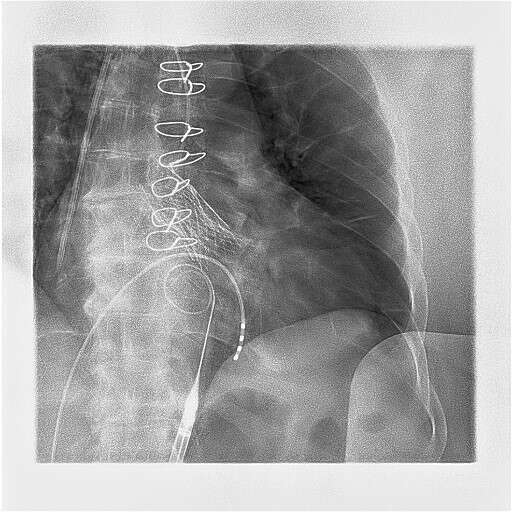
Transcatheter Valve-In-Valve Implantation of a Self-Expandable Valve for the Treatment of a Degenerated Sutureless Aortic Bioprothesis Via Femoral Access: A Case Report
The use of sutureless aortic bioprostheses(SAB) has emerged as a invasive alternative for the severe symptomatic aortic stenosis in patients at high surgical risk. The Perceval system (Sorin Biomedica, Italy) is currently the most used SAB;however, only little is known about the durability of prostheses that are not hand sewn. While successful valve-in-valve (ViV) procedures in degenerated sutureless aortic valves with balloon-expandable devices have been reported, herein we describe the first case, to our knowledge, with a self-expandable Medtronic Evolut Pro valve.
A frail 71-year-old woman with a degenerated Perceval Small(21mm) sutureless bioprothesis, received in 2013 due to severe aortic stenosis, was referred to our hospital due to worsening dyspnea (NYHA class II-III) with a Logistic Euroscore 21.75%. The echocardiography documented preserved left ventricular function and mixed aortic valve disease with aortic valve area 0.75 cm2.
Based on CT measurements, a 23 mm self-expandable Evolut Pro valve was selected. The supra-annular design of Evolut Pro is suitable for ViV implatantion into a Perceval stent. Angiography and hemodynamic measurements confirmed no paravalvular leakage across the valve. At discharge, echocardiography showed proper ViV functioning with no significant leaks, but a remaining mean gradient of 35,8mmHg across the Evolut valve.
It is of high importance to adopt the option of self-expandable devices and all of their advantages over the balloon-expandable valves in treating degenerative sutureless valves via the ViV technique. High post-procedural gradients remain a frequent problem. Additional studies are needed to evaluate the safety of the ViV procedure in this clinical scenario.

Powered by Eventact EMS